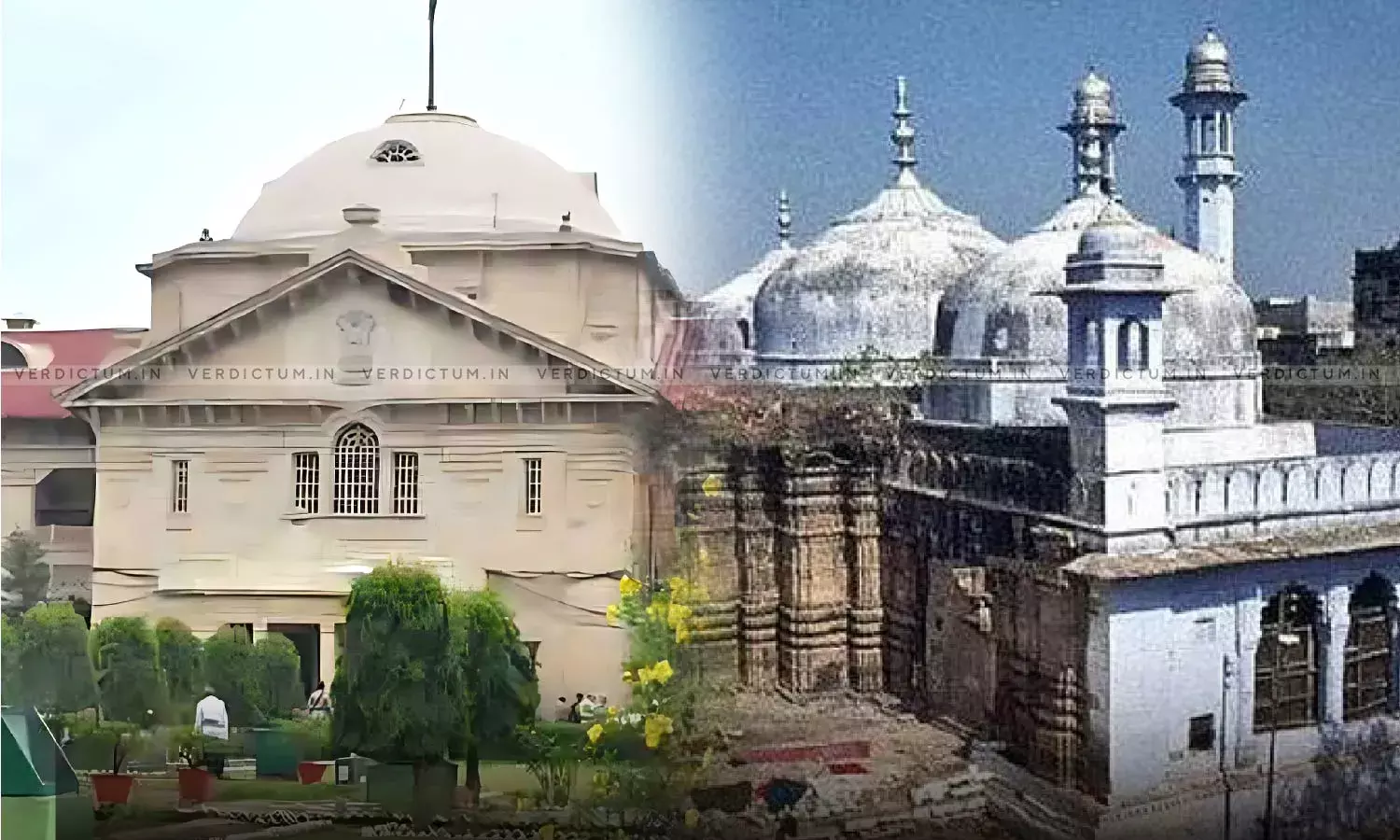Allahabad High Court Upholds Varanasi District Court's Order For Scientific Survey Of Gyanvapi Mosque Site
The Allahabad High Court today, while dismissing the plea by the Committee of Management Anjuman Intezamia Masjid, upheld the order of the Varanasi District Court which had directed the Archaeological Survey of India (ASI) to conduct a "detailed scientific survey" to determine if the Gyanvapi mosque was built at a place where a temple existed earlier.
In its order, the Bench of Chief Justice Pritiknker Diwanker stated that the direction of the Varanasi Court to the ASI for conducting a survey is in the interest of justice. The Court held that the District Court, Varanasi, was justified in issuing the directions.
Recently, the Supreme Court had ordered to maintain the status quo on the directions of the Varanasi Court for a scientific survey for the Masjid Committee to move the Allahabad High Court in the exercise of its jurisdiction under Article 227 of the Constitution to challenge the order of District Judge, Varanasi.
The Anjuman Intezamia Masjid Committee, which manages the mosque, had opposed the direction of the ASI's survey on the grounds that it could disrupt the sanctity of the place and might lead to further controversies. However, the Allahabad Court, after careful consideration, upheld the District Court's order.
The Muslim side had before the Varanasi District Court argued that the plea is not maintainable as the Places of Worship Act 1991 prohibits conversion of any place of worship and mandates the maintenance of the religious character of any place of worship as it existed on August 15, 1947.
The mosque's "wazookhana" (a small reservoir for Muslim devotees to perform ritual ablutions), where a structure claimed by the Hindu litigants to be a "Shivling" exists, will not be part of the survey, following an earlier Supreme Court order protecting that spot in the complex. The Gyanvapi mosque, located in the ancient city of Varanasi, has been a subject of historical and religious importance for centuries. The dispute over the site has been a matter of contention between various religious groups for many years.












